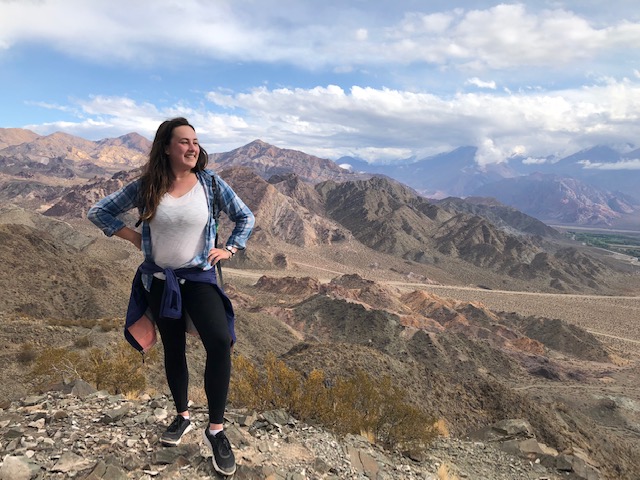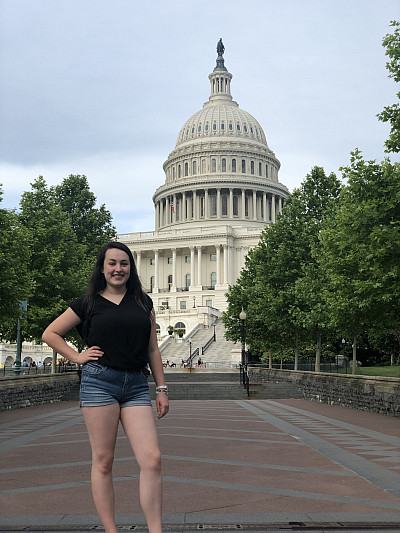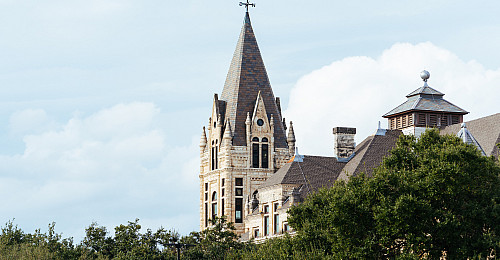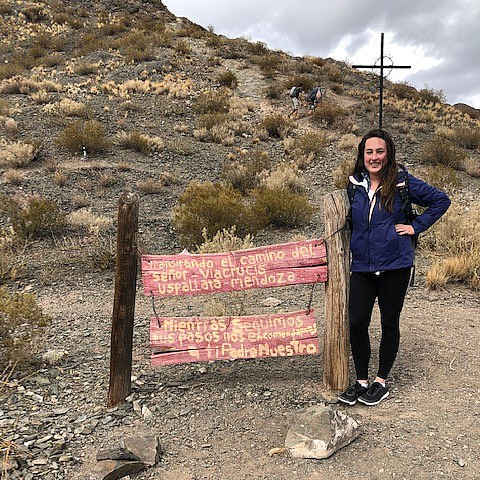News
The Art of Exploration
October 08, 2019
October 08, 2019
Open gallery

So you’re a junior or senior in high school. You are looking for undergrad programs that speak to you, but you can’t hear anything. Looking forward, you care about a lot of things but are unsure of what exactly you want to study. Or maybe you’re on the opposite end and know exactly what you’re going to study and what career path you will have. Chances are, in either case, you will end up in a different place from where you thought, whether the difference be miniscule, vast, or somewhere in between. As students and as humans, we are complex. We all have aptitudes for different things. We have different personalities, different likes and dislikes. We are curious and explorative.
In my experience, that last part has been such an important part of my growth as a person. Southwestern has been a place that not only nurtures curiosity but actually requires it.
Southwestern has been a place that not only nurtures curiosity but actually requires it.
When I was in the college-search-freaking-out mode, I had some general ideas of subjects I liked but no idea of what would suit me best as a major. I was at a small magnet school, so I knew I wanted a college that was relatively small, but beyond that, I was lost. I loved art, so I looked at art schools. I wanted job security, so I looked at business schools. I looked at schools that were in state, out of state, in the Northeast, and on the West Coast—and everything in between. I really wanted to get to know a lot of schools to find out what I liked and didn’t like.
It wasn’t until I visited the Northeast that I really learned what the liberal arts were. But when I did, a door was unlocked. I loved the idea that there were options in what to study, that you didn’t have to tie yourself down to one thing. I loved how the extracurriculars were seen as just as much a part of the experience as the classes. I loved how it was intimate and all of your professors knew you.
A target was found: I wanted to go to a liberal-arts school.
From there, I began the quest. After a few weeks of searches, I realized that there was a shortage of liberal-arts schools in Texas. The only one that really seemed remotely similar was a teeny-tiny school in Georgetown that I had never heard of. I looked into it, and it seemed like a good school. I went to tour the campus and saw how beautiful it was. I talked to students and professors and got a better idea of the culture: It was warm, and people took time to talk to me. There were people laughing and playing frisbee on the lawn, sunbathing, or reading. Soon, I was sold. I wanted to go to this school. As fate would have it, this is exactly where I ended up.
These past three years at Southwestern have really been a whirlwind. I have learned that it is a place where students are chronically overcommitted but they are so passionate about so much. I have learned that this is a place where double majors come by the dozen. It is a place where you end up overqualified for whatever you are trying to go into because you have had the support to get the experience that matters. The term high-impact experience is used to talk about opportunities like internships, study abroad, research, and community-engaged learning. It is a term used to talk about those educational experiences that will change your life. At Southwestern, there is so much available to you that it is not uncommon to end up with five or six of these experiences under your belt just by following what seems interesting to you. That is where the exploration piece comes back into play.
At SU, baked deep in the curriculum is the yearning for students to do everything that makes them who they are. In our current curriculum, which was put into play in 2017, one-third of our curriculum is dedicated specifically to general education, one-third to your major(s), and one-third to the category exploration. This exploration piece is truly so key. It is why there are so many double majors: people can study what their parents want them to study and what they want to study— all while graduating on time. That flexibility is built in for you— a whole third of the curriculum enables you to do exactly what you want to do with it. To me, this is the part that truly makes us liberal arts. Not only does Southwestern want you to have different interests; they encourage it. They want you to explore.
That flexibility is built in for you— a whole third of the curriculum enables you to do exactly what you want to do with it. To me, this is the part that truly makes us liberal arts.

Looking back on my wide range of experiences, I realize that 90% of them, especially given the short time period in which they resided, would not have been possible if I was not at Southwestern. If I had gone to a business school, I would not have had my wonderful art classes. If I had gone to an art school, I would not have had my extremely useful business classes. If I had gone to a larger school, studying abroad would have been vastly harder, and when applying for internships, I would have been just another student from Big Texas University.
People who know SU know that Southwestern students stand out. In seeing the thoughtful, overly qualified explorer–students it creates, it is not hard to see why.

















